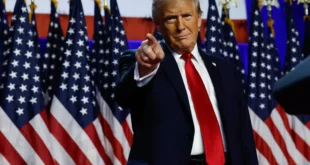Lydia Jacobs
As the world watches the unfolding crisis in Ukraine, the role of BRICS in mediating peace has come under increasing scrutiny. A recent meeting between Indian Prime Minister Narendra Modi and Ukrainian President Volodymyr Zelenskyy in Kyiv has sparked debate about India’s potential as a peace broker between Russia and Ukraine. The meeting, held on August 23, was the first official visit by an Indian head of government to Ukraine since the establishment of diplomatic relations in 1992. While the visit was symbolic, it also raised controversial questions about India’s motivations and the broader implications for the BRICS alliance.
India’s Delicate Balancing Act
India’s proposal to host a second peace summit underscores the delicate balancing act it must perform in its relations with Russia and Ukraine. Historically, India has maintained cordial ties with Russia, dating back to Soviet times. These relations have been characterized as “friendly” and mutually beneficial, with bilateral trade reaching $65.6 billion in FY24—a 33% increase year-on-year. This trade relationship has only strengthened since 2022, as India capitalized on discounted Russian crude despite Western criticism.
On the other hand, Modi’s visit to Kyiv and his support for Ukraine’s peace efforts signal a nuanced shift in India’s foreign policy. Modi’s discussions with Zelenskyy focused on Ukraine’s peace formula, which emphasizes territorial integrity and the withdrawal of Russian troops. Modi’s statement, “We are on the side of peace,” and his willingness to play a role in mediating peace reflect India’s broader ambitions on the global stage.
BRICS: A Divided Front?
Since the conflict began in February 2022, BRICS members—particularly China and India—have refrained from condemning Russia’s actions, instead urging dialogue and diplomacy. This neutral stance has been mirrored by other BRICS nations like Brazil and South Africa, leading some to question whether the alliance can present a unified front in resolving the Ukraine crisis.
South Africa and China have both attempted peace resolutions, albeit with limited success. Russia has downplayed these efforts, with Foreign Minister Sergey Lavrov dismissing South Africa’s peace initiative as poorly formulated. Similarly, Kremlin spokesperson Dmitry Peskov criticized the African peace proposal as “difficult to implement.”
China, however, has positioned itself as a potential mediator, with President Xi Jinping proposing the Global Security Initiative (GSI) as a framework for resolving international conflicts, including the Russia-Ukraine crisis. The GSI emphasizes cooperation, respect for sovereignty, and peaceful resolution of disputes, offering a comprehensive approach to global security.
The Road Ahead: Challenges for BRICS
As BRICS members navigate the complexities of the Russia-Ukraine conflict, the alliance’s ability to broker peace remains uncertain. Despite their collective influence, BRICS nations have yet to find common ground on the Ukrainian issue. This lack of consensus raises questions about the alliance’s effectiveness in addressing global security challenges.
Moreover, the recent expansion of BRICS, with the addition of Ethiopia, Egypt, Iran, Saudi Arabia, and the United Arab Emirates, complicates the group’s dynamics. Experts are questioning whether BRICS can truly commit to a collective mediation process that aligns with its principles of multipolarity and inclusive global governance.
France and the UAE: A Potential Power Play
France could potentially leverage the situation if it perceives UAE interference in Pavel Durov’s legal case. Such interference might suggest a suspicious relationship between Telegram, Durov, and the UAE. For France, this could be an opportunity to exert diplomatic pressure, demand transparency, and even negotiate concessions from the UAE in other areas of bilateral relations.
Additionally, France could use this as a case to push for stricter regulations and oversight on foreign investments in tech companies, especially those with implications for national security and data privacy. Publicly, this could serve as a powerful narrative reinforcing France’s stance on safeguarding its national interests in an increasingly complex global landscape.
Conclusion: The Future of Peace Mediation
As the Russia-Ukraine conflict continues to destabilize global security, the role of BRICS in mediating peace will be crucial. However, the alliance’s internal divisions and the complexities of the geopolitical landscape pose significant challenges. India’s involvement, while promising, is just one piece of a larger puzzle that includes other key players like China and South Africa.
The future of Ukraine peace summits and BRICS’ role in them remains uncertain. As the global community looks for solutions, the effectiveness of BRICS as a peace broker will be tested, shaping the future of international diplomacy in the years to come.
 Geostrategic Media Political Commentary, Analysis, Security, Defense
Geostrategic Media Political Commentary, Analysis, Security, Defense





